Mental health is one of the most pressing issues in today’s fast-paced, digitally connected world. For many, the struggle is not just external but internal, making it all the more isolating and difficult to confront. This is a story about how I faced my demons head-on, with the help of friends, family, and a skilled psychiatrist, and how I continue to live with the understanding that mental health is an ongoing journey.

The Beginning: A Nightmare Unfolds
It all began in 2014 when I was a student at the National Institute of Technology (NIT) Meghalaya, pursuing my engineering degree in Electronics and Communication. Like many students in a demanding academic environment, I was focused on my studies, trying to balance the weight of expectations and the uncertainty of the future. I had no idea that something far more personal and challenging was about to come my way.
One evening, while studying, I felt a sudden wave of panic. My heart raced, my chest tightened, and my hands began to tremble uncontrollably. I couldn’t breathe properly, and it felt as though the world was closing in on me. I had never experienced anything like this before. It was terrifying.
Thankfully, my close friends, Subhrajyoti Paul and Rahul Rawat, were with me. Sensing the urgency of the situation, they rushed me to the hospital. Various tests were conducted, and while I waited for the results, the fear of the unknown gnawed at me. To my surprise, all the reports came back normal, and I was discharged with advice to take better care of myself. Little did I know, this was just the beginning of a long journey with anxiety.
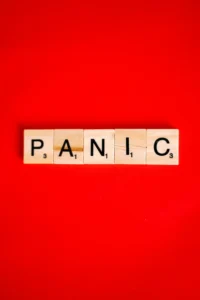
The Relentless Recurrence
The following years saw these panic attacks resurface unexpectedly. Whether I was at work or simply going about my day, the sudden onset of symptoms – racing heartbeat, sweating, difficulty breathing, and a sense of impending doom – would strike without warning. The unpredictability of these episodes made them all the more frightening.
By the time I relocated to Siliguri, West Bengal, in 2019, the attacks had become more frequent. The COVID-19 pandemic, which began in 2020, only exacerbated my condition. Like many others, I found myself confined to my home, isolated from friends and colleagues. The overwhelming anxiety that gripped the world during that time seemed to mirror my internal struggles. The attacks intensified, happening almost daily, and I became consumed by fear and dread. The idea of sharing my problems with others scared me. I felt trapped inside my own mind, unable to escape the cycle of panic.
I researched ways to cope with anxiety but was too afraid to seek professional help. For years, I fought my battles in silence, grappling with feelings of hopelessness and, at times, suicidal thoughts. Each day felt like a losing struggle against an invisible force that was eating away at me from the inside.
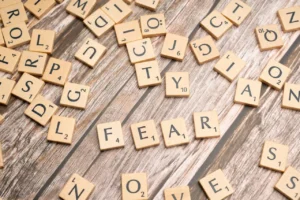

Finding Help: A Turning Point
It wasn’t until 2022 that my life took a significant turn. After years of hiding my struggles, I was finally persuaded by my girlfriend, Sarala, to seek help. She had been my constant support through my darkest moments, and it was her encouragement that gave me the strength to reach out for professional assistance.
I had read about Dr. Arunava Datta, a psychiatrist who took appointments at Neotia Getwell Hospital in Siliguri. Something about his reputation gave me hope, and I booked an appointment. On May 22, 2022, I met Dr. Datta for the first time, and from that moment, I felt a weight lift off my shoulders. His calm demeanor and empathetic approach were exactly what I needed. He listened intently as I recounted my experiences, asked about my past, and helped me understand that I wasn’t alone in my struggles.
After our discussion, he prescribed medication, which I was to take for a month. Within that month, I began to feel the difference. The panic attacks subsided, and for the first time in years, I felt a sense of control over my life. When I returned for a follow-up, Dr. Datta encouraged me to incorporate yoga and weight training into my daily routine, reinforcing the importance of physical health alongside mental well-being.

Living in the Present: A New Beginning
Today, in 2024, I can proudly say that I’m free from the grip of anxiety and panic attacks. I have resumed my daily activities, feel more grounded, and handle life’s challenges with greater ease. However, the fear of relapse still lingers. That fear is a part of me now, but it doesn’t control me like it used to. I am stronger, more resilient, and aware of the tools I have to fight back if those dark moments ever return.

Symptoms, Prevention, and Cure: The Road to Mental Health
My story is not unique. Millions of people around the world suffer from anxiety and panic attacks, but not all of them recognize the symptoms or seek help. Some of the common symptoms of anxiety and panic disorders include:
- a. Rapid heartbeat or palpitations
- b. Shortness of breath or hyperventilation
- c. Sweating, shaking, or trembling
- d. A sense of impending doom or danger
- e. Chest pain or discomfort
- f. Dizziness or lightheadedness
- g. Feelings of detachment from reality
If left unchecked, these symptoms can worsen over time and lead to more severe mental health issues. It’s essential to recognize the warning signs and take preventive measures, such as:
- a. Practicing mindfulness and meditation
- b. Engaging in regular physical exercise, including yoga and strength training
- c. Limiting exposure to stressors, including excessive use of social media
- d. Maintaining a balanced diet and healthy sleep schedule
- e. Seeking professional help when needed
Medication can also play a crucial role in managing anxiety disorders, but it should always be taken under the guidance of a licensed professional. Therapy, including cognitive-behavioral therapy (CBT), is another highly effective tool that helps individuals identify negative thought patterns and develop coping strategy

The Importance of Mental Health Awareness
In today’s fast-paced world, where we are constantly bombarded by information and connected 24/7 through social media, mental health is often neglected. The pressure to perform, to keep up with societal expectations, and to present a perfect version of ourselves online can take a significant toll on our well-being.
Mental health is just as important as physical health, and it’s time we start treating it that way. Whether it’s through conversations, education, or simply being there for a loved one who’s struggling, raising awareness about mental health is vital. No one should have to suffer in silence, and no one should feel ashamed to seek help.
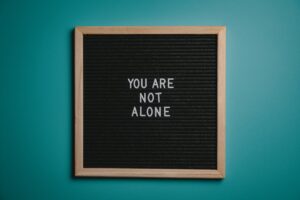
World Suicide Prevention Day 2024
The theme for World Suicide Prevention Day 2024 is “Changing the Narrative on Suicide.” This theme, set to run from 2024 to 2026, aims to encourage a shift from silence and stigma to openness, understanding, and support regarding suicide. The idea is to foster a culture where discussions about mental health are normalized, and systemic changes, such as improved access to mental health care and support, are prioritized. The campaign’s call to action, “Start the Conversation,” emphasizes the importance of having honest dialogues to break down barriers and raise awareness
By encouraging conversations and advocating for mental health policies, this theme aims to create a more supportive society where suicide can be prevented, and individuals feel valued and understood.
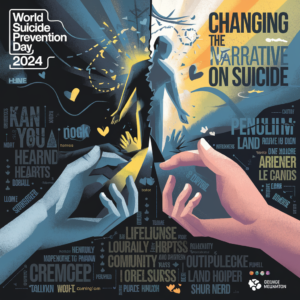
Conclusion: My Journey Forward
My journey with anxiety has taught me that mental health is not something to be taken lightly. It’s an ongoing process, and while I may be in a better place today, I know that the road ahead will have its challenges. But now, I am equipped with the tools and support I need to face those challenges head-on. If my story can inspire even one person to seek help, to open up, or to take that first step toward healing, then it has been worth sharing.
Seeking help is the most important step in any case and there are people, organisations and NGO’s that we can take help from be it World Health Organisation (WHO), International Association for Suicide Prevention(IASP), National Institute of Mental Health(NIMH), India and number of NGOs in India and worlwide who work to make our lives better.
While addressing mental health challenges like anxiety, panic attacks, and suicidal thoughts, it’s essential to have access to the right resources. Rohitreads.com offers a valuable platform where individuals can discover self-help books that guide them on a journey toward personal growth and emotional well-being. Whether you’re struggling with mental health issues or seeking ways to improve your mindset, Rohitreads provides curated book recommendations and blogs that focus on self-development, healing, and mindfulness.
Through these books, readers can find comfort, learn coping mechanisms, and cultivate resilience. As mental health awareness grows, resources like Rohitreads help individuals take proactive steps in improving themselves and nurturing a healthier mindset.
We must remember that mental health is not a destination but a journey. And on this journey, we are never truly alone.



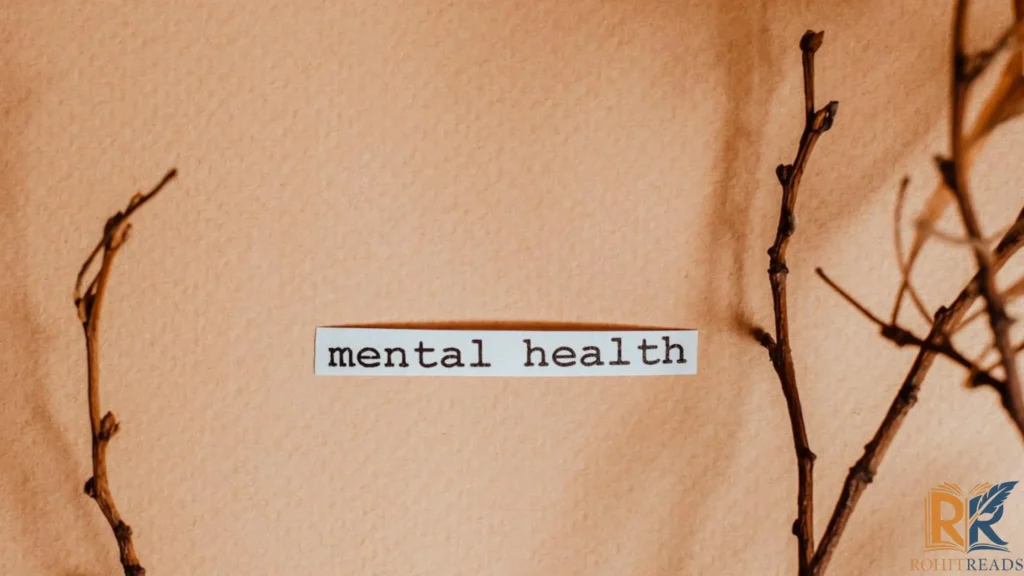
Stay Happy and Blessed always 🙌💖🥰
Thank you very much Dear Anun. Your love and blessing has always made a difference. Always stay bless and happy.